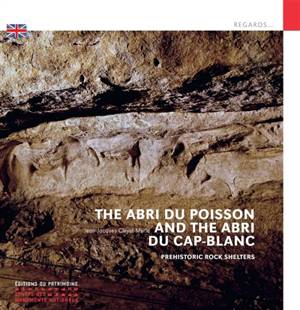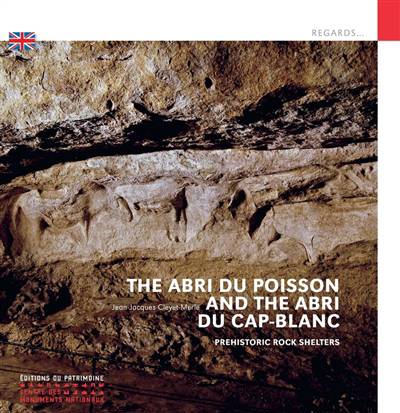
- Afhalen na 1 uur in een winkel met voorraad
- Gratis thuislevering in België vanaf € 30
- Ruim aanbod met 7 miljoen producten
- Afhalen na 1 uur in een winkel met voorraad
- Gratis thuislevering in België vanaf € 30
- Ruim aanbod met 7 miljoen producten
The abri du Poisson and the abri du Cap-Blanc
prehistoric rock shelters
Jean-Jacques Cleyet-MerleOmschrijving
The abri du poisson and the abri du Cap-Blanc
Prehistoric rock shelters
In the days of the hunter-gatherers, art was displayed on the walls of caves and rock shelters. The Beune and Vézère valleys contained numerous specimens of Palaeolithic parietal art, which appeared during the magical moment when Homo sapiens - modern man - demonstrated his capacity for symbolic expression. Prehistoric artists used various techniques, the most widespread being painting and engraving. Much rarer, and more spectacular, the working of the rock wall in relief ranged from champlevé to high relief - the Abri du Poisson and the Abri du Cap-Blanc are two magnificent examples of this. The animals of these parietal decorations were depicted- some of them life-size - with a sometimes stunning level of detail and realism. Salmon, horses, and bison make up a distinctive and original bestiary that probably illustrated the impact of the environment and its changes on the way of life of our Palaeolithic ancestors.
Specificaties
Betrokkenen
- Auteur(s):
- Vertaler(s):
- Uitgeverij:
Inhoud
- Aantal bladzijden:
- 71
- Taal:
- Engels
Eigenschappen
- Productcode (EAN):
- 9782757705322
- Verschijningsdatum:
- 22/12/2016
- Uitvoering:
- Paperback
- Afmetingen:
- 250 mm x 260 mm
- Gewicht:
- 447 g

Alleen bij Standaard Boekhandel
Beoordelingen
We publiceren alleen reviews die voldoen aan de voorwaarden voor reviews. Bekijk onze voorwaarden voor reviews.











